
Innsbruck-Land: The Heart of the Austrian Alps
Nestled in the heart of the Austrian Alps, Innsbruck-Land is a paradise for nature lovers and adventure seekers alike. The region boasts stunning mountain vistas, pristine lakes, and charming alpine villages that offer a perfect blend of natural beauty and cultural heritage. Whether you are here to ski on world-class slopes, hike through lush meadows, or simply relax in a cozy mountain hut, Innsbruck-Land has something for everyone. The area is rich in history, with many well-preserved medieval castles and churches to explore. The quaint town of Hall in Tirol, known for its beautiful old town and historic salt mine, is a must-visit. Meanwhile, the scenic Stubai Valley offers some of the best hiking and skiing opportunities in the region, making it a favorite among outdoor enthusiasts. For those interested in local culture, Innsbruck-Land hosts numerous traditional festivals and events throughout the year. From the festive Christmas markets in the winter to the lively Almabtrieb cattle drives in the autumn, visitors can immerse themselves in the local customs and traditions. Don't forget to savor the delicious Tyrolean cuisine, which features hearty dishes like dumplings, schnitzel, and apple strudel.
Local tips in Innsbruck-Land
- Visit in winter for excellent skiing and snowboarding opportunities. The Stubai Glacier offers year-round skiing.
- Don't miss the Christmas markets in Hall in Tirol and other nearby towns for a festive experience.
- Consider purchasing the Innsbruck Card for free or discounted entry to many attractions and free public transport.
- Try the local Tyrolean dishes at traditional mountain huts (Almhütten) for an authentic culinary experience.
- Pack layers and waterproof gear, as mountain weather can be unpredictable.
Innsbruck-Land: The Heart of the Austrian Alps
Nestled in the heart of the Austrian Alps, Innsbruck-Land is a paradise for nature lovers and adventure seekers alike. The region boasts stunning mountain vistas, pristine lakes, and charming alpine villages that offer a perfect blend of natural beauty and cultural heritage. Whether you are here to ski on world-class slopes, hike through lush meadows, or simply relax in a cozy mountain hut, Innsbruck-Land has something for everyone. The area is rich in history, with many well-preserved medieval castles and churches to explore. The quaint town of Hall in Tirol, known for its beautiful old town and historic salt mine, is a must-visit. Meanwhile, the scenic Stubai Valley offers some of the best hiking and skiing opportunities in the region, making it a favorite among outdoor enthusiasts. For those interested in local culture, Innsbruck-Land hosts numerous traditional festivals and events throughout the year. From the festive Christmas markets in the winter to the lively Almabtrieb cattle drives in the autumn, visitors can immerse themselves in the local customs and traditions. Don't forget to savor the delicious Tyrolean cuisine, which features hearty dishes like dumplings, schnitzel, and apple strudel.
When is the best time to go to Innsbruck-Land?
Iconic landmarks you can’t miss
Golden Roof
Explore Innsbruck's Golden Roof, an iconic historical landmark with rich cultural significance and breathtaking views of the surrounding mountains.

Ambras Castle Innsbruck
Explore Ambras Castle in Innsbruck - a breathtaking blend of history, art, and stunning mountain views in the heart of Austria.
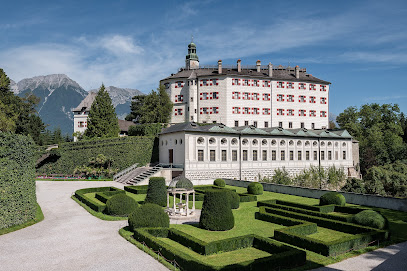
Stiftskeller
Experience the authentic taste of Tyrol at Stiftskeller, Innsbruck's beloved restaurant offering traditional Austrian cuisine in a historic setting.
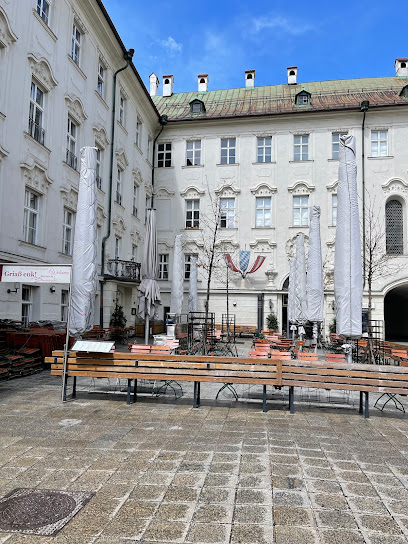
Innsbrucker Hofgarten
Explore the tranquil beauty of Innsbrucker Hofgarten, a stunning garden in Innsbruck perfect for relaxation, picnics, and enjoying nature's splendor.
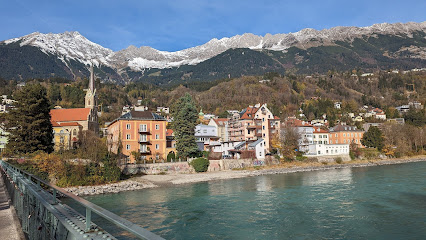
RathausGalerien
Experience the vibrant blend of shopping and dining at RathausGalerien, Innsbruck's premier shopping mall, located in the heart of the city.
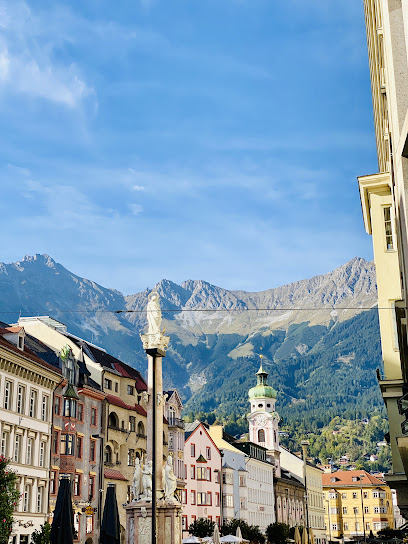
Innsbrucker Nordkettenbahnen Betriebs GmbH (Nordkette)
Explore the stunning Nordkette mountains with Innsbrucker Nordkettenbahnen for skiing, hiking, and breathtaking alpine views in Innsbruck.
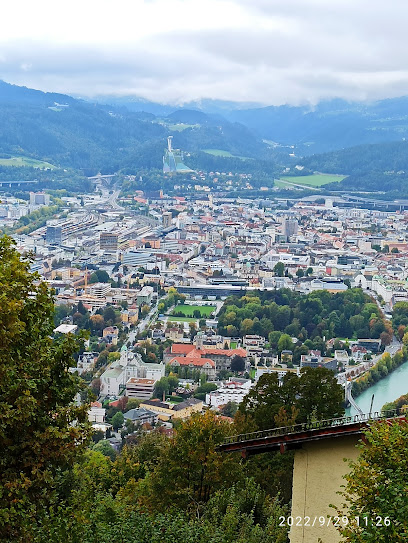
Triumphpforte
Discover the grandeur of Triumphpforte in Innsbruck, a must-see historical landmark showcasing Austria's rich cultural heritage and stunning baroque architecture.
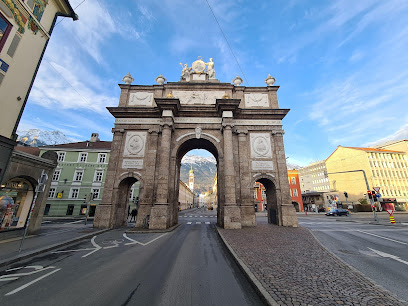
Hafelekarspitze
Discover breathtaking views and serene alpine beauty at Hafelekarspitze, an iconic observation deck in the heart of Innsbruck.
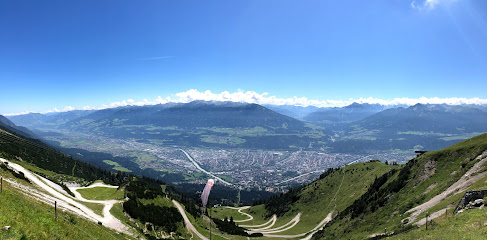
Annasäule
Discover the captivating Annasäule in Innsbruck, a historical landmark symbolizing resilience and faith, surrounded by the beauty of the Tyrolean Alps.
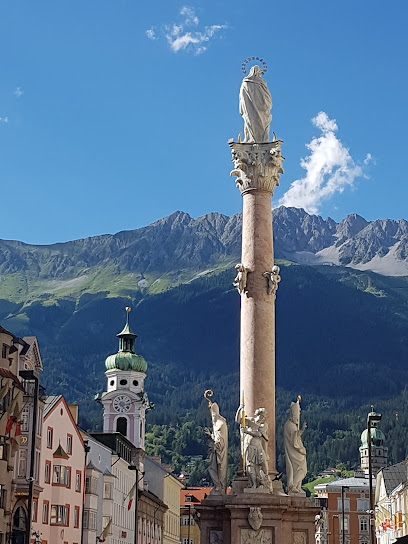
Leutascher Geisterklamm und Wasserfallsteig
Explore the breathtaking Leutascher Geisterklamm and Waterfall Trail, a stunning gorge in the Tyrolean Alps, perfect for nature lovers and adventure seekers.
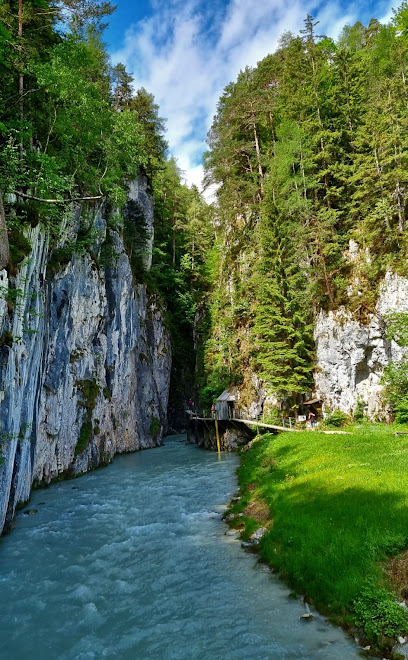
Hofburg Innsbruck
Discover the elegance and rich history of Hofburg Innsbruck, a stunning palace museum showcasing the legacy of the Habsburgs in the heart of Tyrol.

Tirol Panorama and Kaiserjäger Museum
Discover the Tirol Panorama and Kaiserjäger Museum: A captivating cultural landmark showcasing Tyrol's breathtaking history and stunning panoramic views.
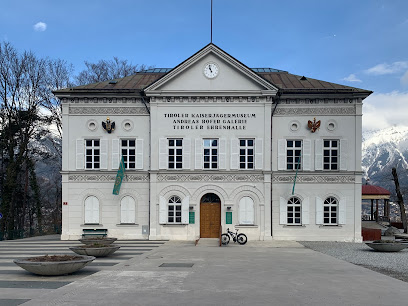
Congress Innsbruck
Discover Congress Innsbruck, a premier convention center blending modern facilities with breathtaking alpine views, perfect for events and cultural experiences.
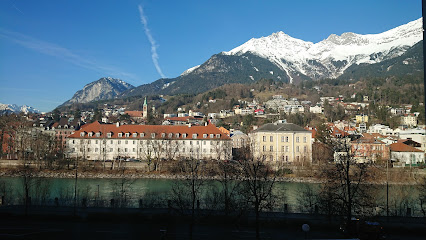
Altstadt Innsbruck
Explore the historical heart of Innsbruck at Altstadt Innsbruck, where medieval charm meets vibrant culture amidst stunning alpine scenery.
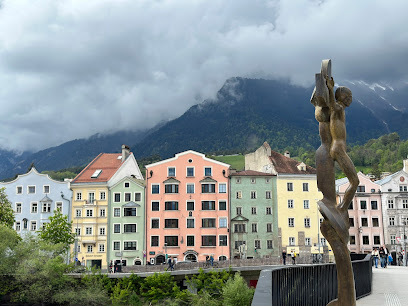
Dom St. Jakob
Explore the Gothic grandeur of Dom St. Jakob in Innsbruck, an architectural masterpiece and serene sanctuary rich in history and culture.
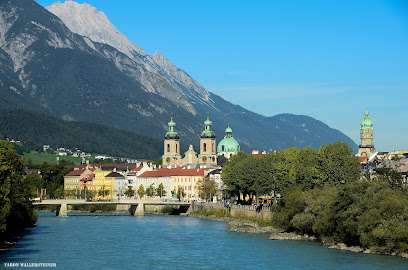
Unmissable attractions to see
Golden Roof
Discover Innsbruck's Golden Roof, a stunning historical landmark adorned with gilded tiles, reflecting the city's rich cultural heritage and architectural splendor.
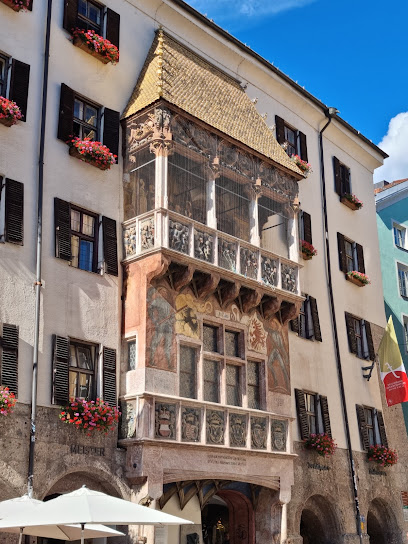
Alpenzoo Innsbruck - Tirol
Experience the beauty of native Alpine wildlife at Alpenzoo Innsbruck, a scenic zoo offering a unique glimpse into the heart of the Tyrolean Alps.
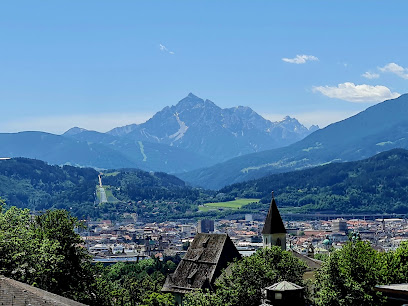
Ambras Castle Innsbruck
Explore the rich history and artistry of Ambras Castle in Innsbruck, a stunning blend of architecture and cultural treasures amidst beautiful landscapes.
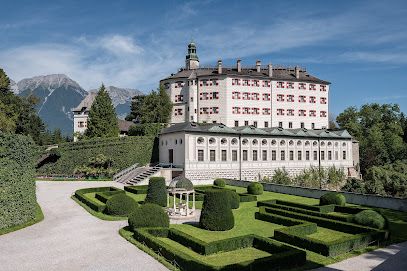
Innsbrucker Hofgarten
Explore the serene beauty of Innsbrucker Hofgarten, a stunning garden in Innsbruck, Austria, perfect for relaxation and scenic views.
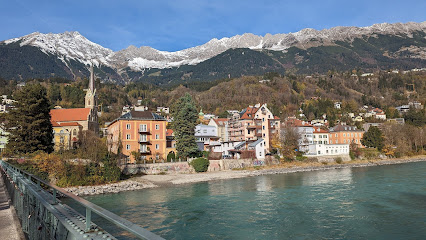
Essential places to dine
Stiftskeller
Discover authentic Austrian flavors at Stiftskeller, Innsbruck's historic restaurant offering delicious cuisine in a charming atmosphere.
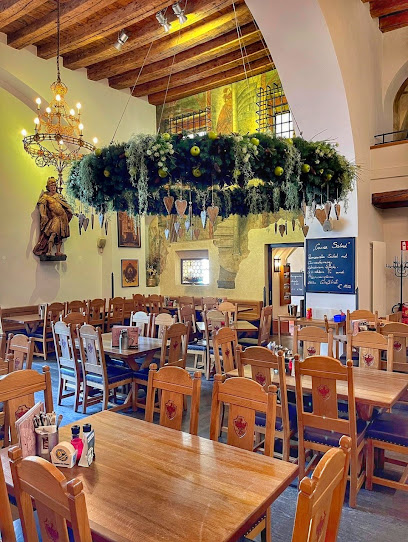
L'Osteria Innsbruck
Discover authentic Italian flavors at L'Osteria Innsbruck - where every meal feels like a trip to Italy.
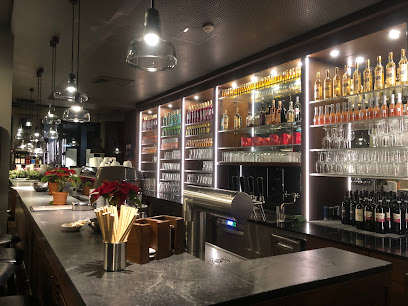
Ludwig
Discover gourmet burgers at Ludwig in Innsbruck – where quality meets flavor in a cozy setting.
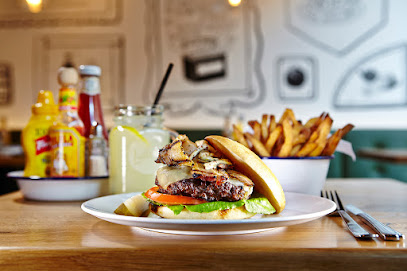
Bierstindl
Discover authentic Austrian cuisine paired with captivating live performances at Bierstindl in Innsbruck.
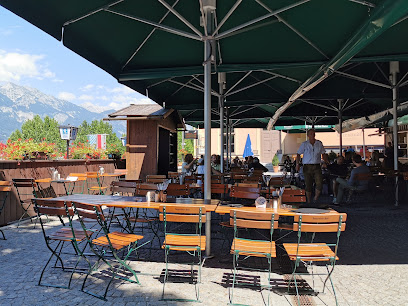
Restaurant Seegrube
Experience exceptional dining with stunning views at Restaurant Seegrube in Innsbruck, where local flavors meet breathtaking alpine scenery.
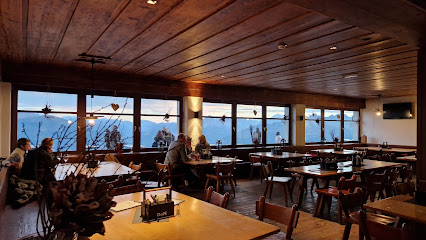
Die Pizzerei
Experience authentic Italian cuisine at Die Pizzerei in Innsbruck – where every pizza is crafted with passion and tradition.
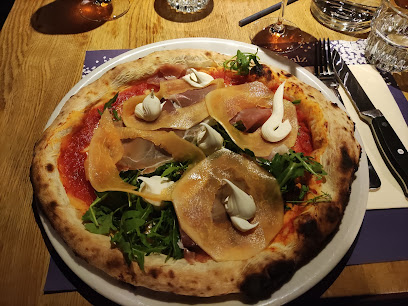
Restaurant Goldener Adler Innsbruck
Discover authentic Austrian flavors at Restaurant Goldener Adler in Innsbruck – a family-friendly destination for meat lovers and wine enthusiasts.

FloJos
Experience the best of Innsbruck's culinary scene at FloJos - where delicious steaks meet vibrant nightlife.
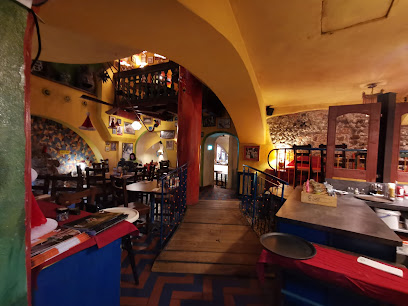
Fischerhausl
Discover the delightful fusion of local cuisine and warm hospitality at Fischerhausl in Innsbruck.
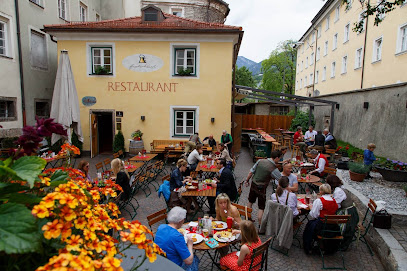
Route66 Innsbruck
Experience authentic American cuisine at Route66 Innsbruck—where hearty meals meet warm hospitality in a charming setting.
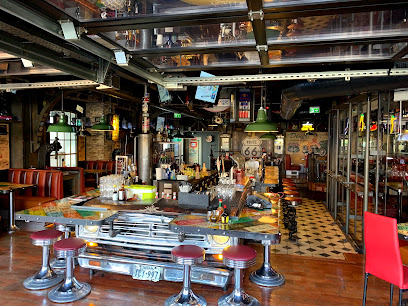
Weisses Rössl - Hotel | Restaurant | Bar
Experience authentic Tyrolean hospitality at Weisses Rössl – your go-to restaurant, bar & hotel in Innsbruck.
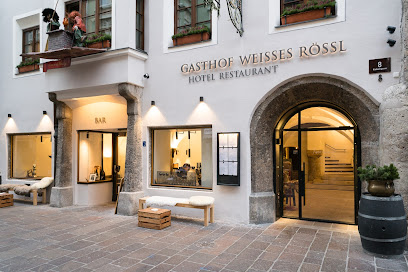
auis
Discover Auis Restaurant and Bar in Innsbruck: where exquisite steaks meet vibrant nightlife in a cozy setting.
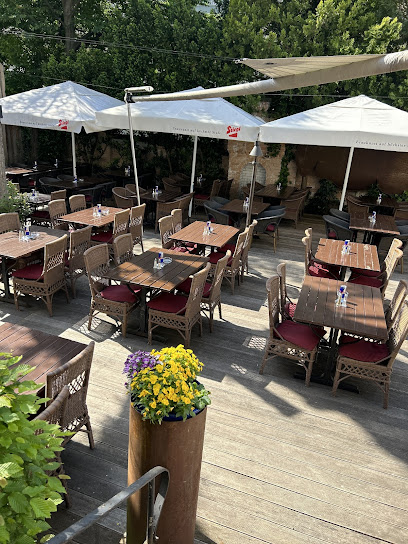
Restaurant-Bar Krahvogel
Experience authentic Austrian cuisine at Restaurant-Bar Krahvogel in Innsbruck – your destination for delicious food and refreshing drinks.
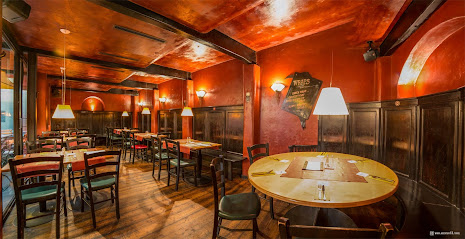
Green Flamingo Innsbruck
Discover Green Flamingo Innsbruck: A premier vegan restaurant offering fresh, local ingredients in an inviting alpine setting.
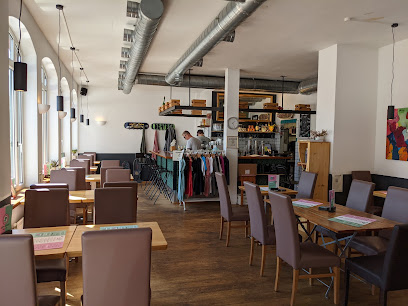
Burkia Innsbruck
Discover authentic Austrian flavors at Burkia Innsbruck, where traditional cuisine meets stunning alpine views for an unforgettable dining experience.
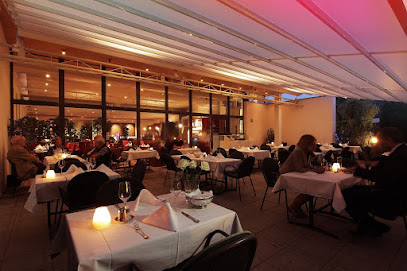
Markets, malls and hidden boutiques
DEZ Innsbruck
Explore DEZ Innsbruck, a premier shopping mall offering a delightful mix of fashion, food, and unique Tyrolean experiences in the heart of Innsbruck.
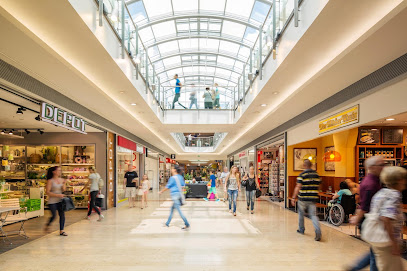
Sillpark
Discover Sillpark, Innsbruck's premier shopping mall featuring diverse shops, dining options, and a vibrant atmosphere for an unforgettable shopping experience.
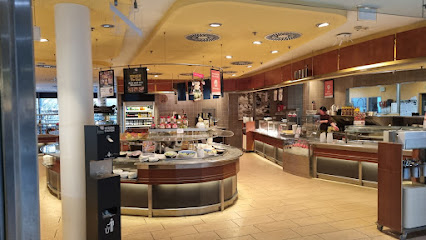
Kaufhaus Tyrol
Discover the ultimate shopping experience at Kaufhaus Tyrol, where local charm meets contemporary retail in the heart of Innsbruck.
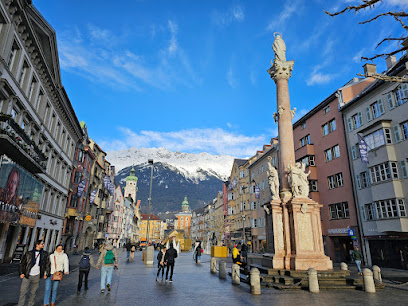
RathausGalerien
Experience the best of shopping, dining, and leisure at RathausGalerien, the heart of Innsbruck's vibrant shopping scene.
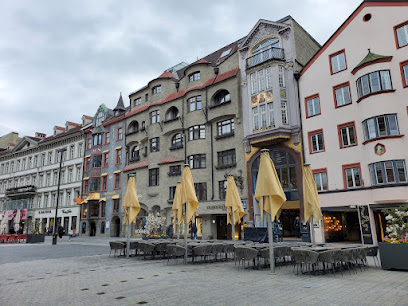
Annasäule
Experience the rich history and vibrant culture at Innsbruck's iconic Annasäule, a captivating landmark in the heart of the city.
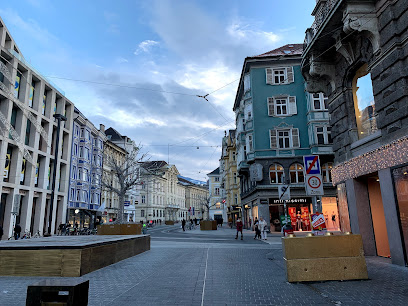
Shopping Center West
Explore Shopping Center West in Innsbruck for a unique blend of shopping, dining, and entertainment in a stunning alpine setting.
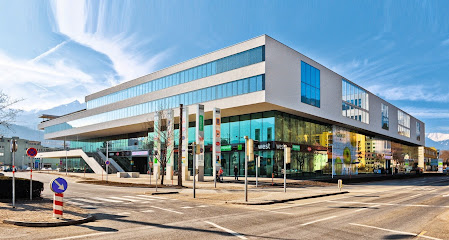
Inntalcenter Telfs
Explore the vibrant Inntalcenter Telfs, a shopping haven with diverse shops and delightful dining options in the heart of Telfs, Austria.
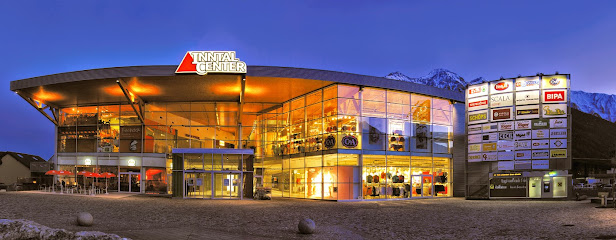
Mode von Feucht
Discover the unique fashion offerings at Mode von Feucht, a premier clothing store in Innsbruck that blends local style with contemporary trends.
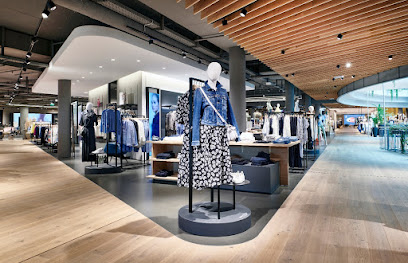
NOWHEREVINTAGE Innsbruck
Explore the charm of vintage fashion at NOWHEREVINTAGE Innsbruck, where unique finds and sustainable style come together.
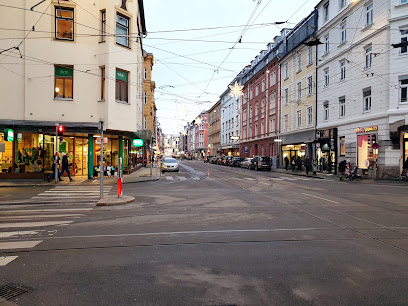
Tirol Shop Innsbruck
Explore Tirol Shop Innsbruck for authentic Tyrolean fashion, blending tradition with modern style in the heart of the Austrian Alps.
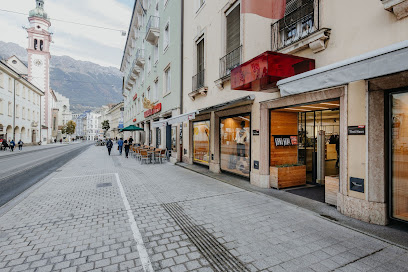
Patagonia Innsbruck
Discover Patagonia Innsbruck for high-quality outdoor gear and clothing, perfect for exploring the stunning landscapes of the Tyrolean Alps.
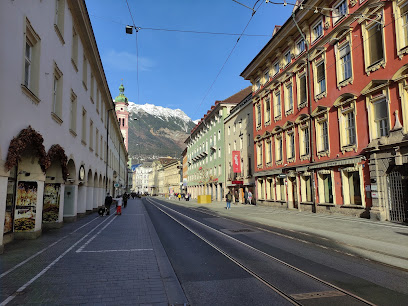
MOREBOARDS Innsbruck Outlet
Unleash your shopping spirit at MOREBOARDS Innsbruck Outlet, where top brands meet unbeatable prices in the heart of the Alps.
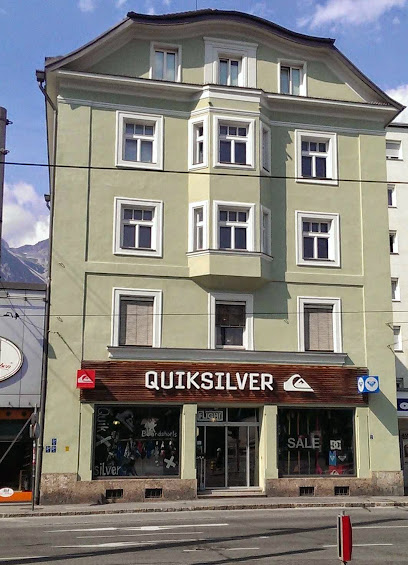
Weltladen Innsbruck Leopoldstraße
Explore the charm of Weltladen Innsbruck, where ethical fashion meets gourmet chocolate delights in the heart of Austria's picturesque city.
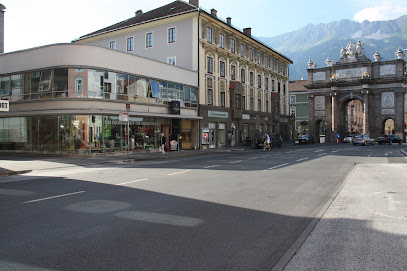
Holzknecht's Erlebniseinkauf
Discover authentic Austrian gifts and crafts at Holzknecht's Erlebniseinkauf in the beautiful Stubaital Valley.
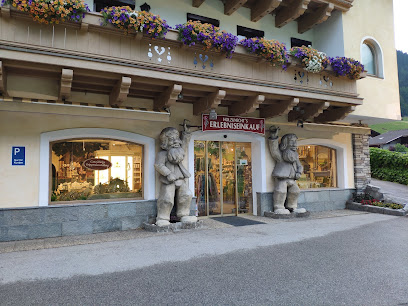
Resort Innsbruck, Concept Store
Explore the Resort Innsbruck Concept Store for unique gifts, gourmet groceries, and local treasures in the heart of Innsbruck.
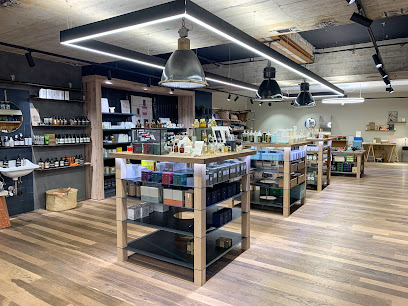
Essential bars & hidden hideouts
The Galway Bay
Experience the warmth of Irish hospitality at The Galway Bay, a vibrant pub in Innsbruck serving authentic cuisine and live music.
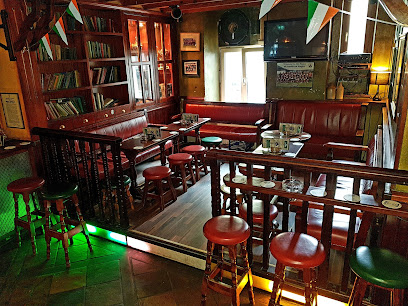
Cafe Bar Moustache
Experience the vibrant atmosphere of Cafe Bar Moustache in Innsbruck, where delightful drinks and cozy ambiance await your visit.
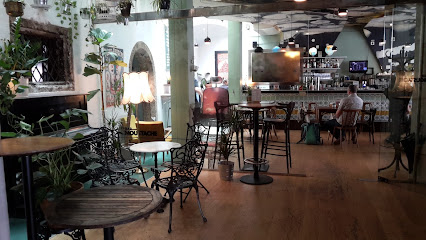
Liquid Diary
Discover Liquid Diary, Innsbruck's premier bar for innovative cocktails and a lively atmosphere, perfect for unwinding after a day of exploration.
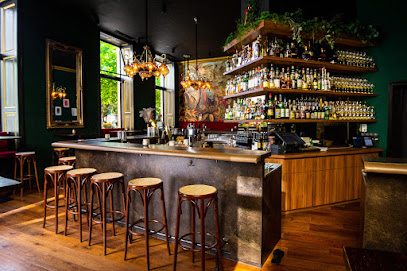
Sixty Twenty Bar und Cafe
Experience the vibrant nightlife of Innsbruck at Sixty Twenty Bar und Cafe, featuring a lively atmosphere, delicious drinks, and great food.
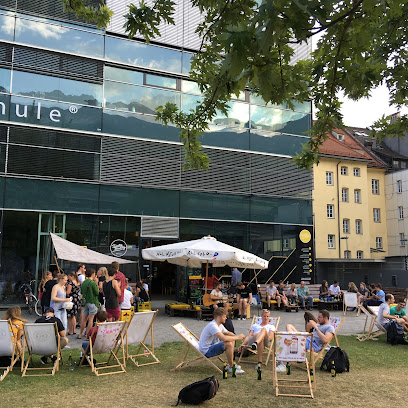
Cafe/Bar Wohnzimmer
Discover the perfect blend of relaxation and entertainment at Cafe/Bar Wohnzimmer in Innsbruck, featuring cocktails, coffee, and live music in a cozy ambiance.
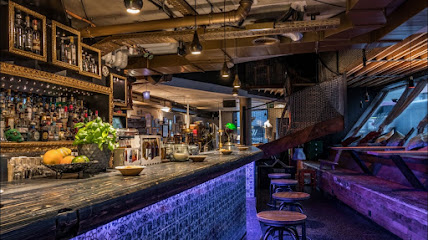
Zappa Music Bar
Experience the vibrant nightlife of Innsbruck at Zappa Music Bar, where music, good vibes, and a diverse crowd come together.
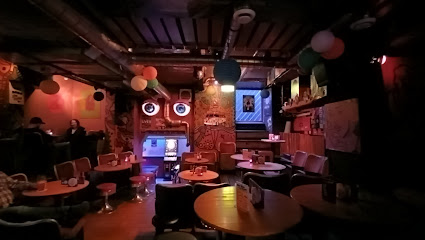
Dunlin Bar Innsbruck
Discover Dunlin Bar in Innsbruck, where unique cocktails and a vibrant ambiance create an unforgettable nightlife experience.
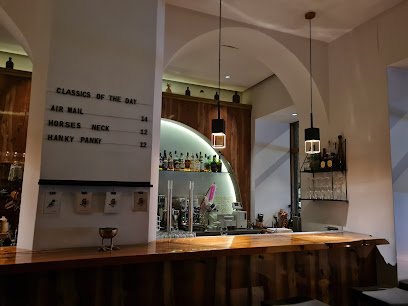
Marktbar am Inn
Discover the lively Marktbar am Inn, a perfect riverside spot for drinks, local culture, and a vibrant social atmosphere in Innsbruck.
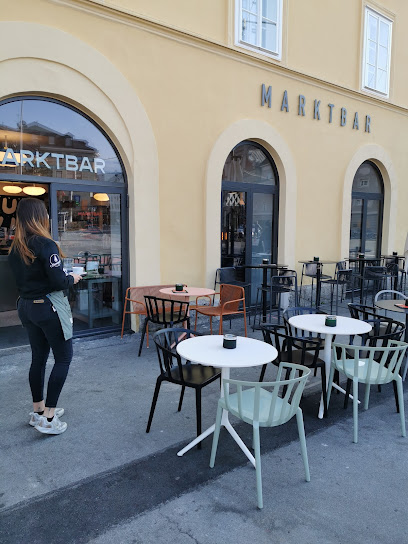
TnT Sportsbar - No bets, just fun
Discover the vibrant atmosphere of TnT Sportsbar in Innsbruck, where sports, great food, and lively company come together for an unforgettable experience.
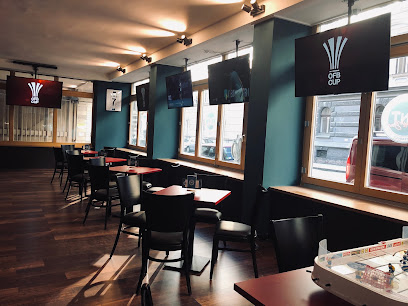
Blaue Brigitte
Discover the vibrant atmosphere and stunning views at Blaue Brigitte, the must-visit bar in the heart of Innsbruck, Austria.
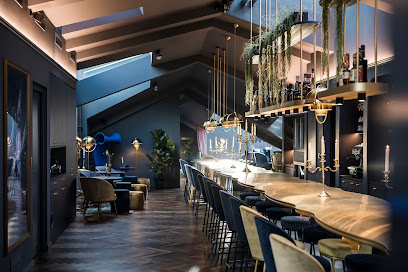
C.U. Cocktail Lounge
Experience the vibrant nightlife of Innsbruck at C.U. Cocktail Lounge, where expertly crafted cocktails and a lively ambiance await.
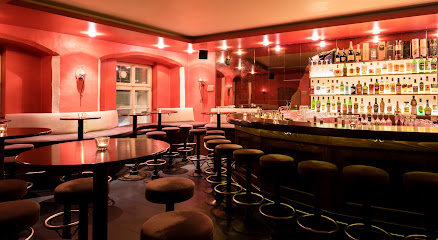
Bar Centrale
Experience the vibrant blend of coffee culture and nightlife at Bar Centrale in Innsbruck, a must-visit for every traveler.
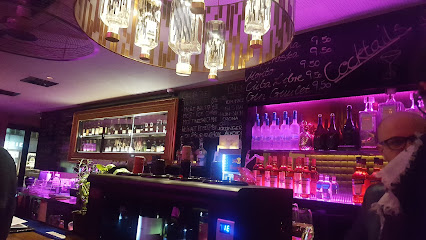
Plansch Bar
Experience the vibrant nightlife of Innsbruck at Plansch Bar, where innovative cocktails and a welcoming atmosphere await every visitor.
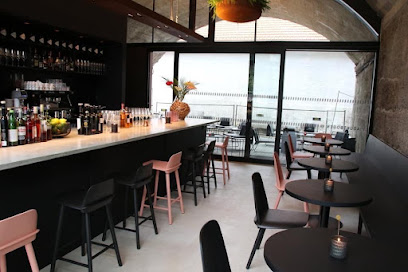
PM Innsbruck
Discover the vibrant PM Innsbruck, a must-visit cocktail bar where locals and tourists mingle over expertly crafted cocktails in a lively atmosphere.
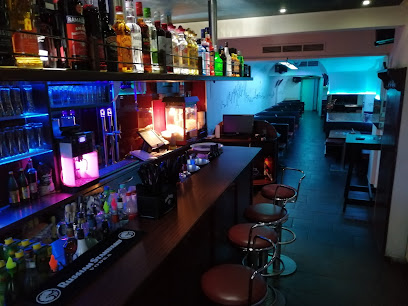
Local Phrases about Innsbruck-Land
-
- HelloHallo
[hah-loh] - GoodbyeAuf Wiedersehen
[owf vee-der-zay-en] - YesJa
[yah] - NoNein
[nine] - Please/You're welcomeBitte
[bih-teh] - Thank youDanke
[dahn-keh] - Excuse me/SorryEntschuldigung
[ent-shool-dee-goong] - How are you?Wie geht es dir?
[vee gayt es deer] - Fine. And you?Gut. Und dir?
[goot oond deer] - Do you speak English?Sprechen Sie Englisch?
[shpre-khen zee eng-lish] - I don't understandIch verstehe nicht
[ikh fer-shtay-eh nikt]
- HelloHallo
-
- I'd like to see the menu, pleaseIch möchte bitte die Speisekarte sehen
[ikh merkhte bih-te dee shpize-kahr-teh zay-en] - I don't eat meatIch esse kein Fleisch
[ikh es-se kine flysh] - Cheers!Prost!
[prohst] - I would like to pay, pleaseIch möchte bitte bezahlen
[ikh merkhte bih-te beh-tzah-len]
- I'd like to see the menu, pleaseIch möchte bitte die Speisekarte sehen
-
- Help!Hilfe!
[hil-fuh] - Go away!Geh weg!
[geh vehg] - Call the Police!Rufen Sie die Polizei!
[roo-fen zee dee poh-lee-tsy] - Call a doctor!Rufen Sie einen Arzt!
[roo-fen zee iyn-en ahr-tsht] - I'm lostIch habe mich verirrt
[ikh hah-beh meekh feh-reert] - I'm illIch bin krank
[ikh been krank]
- Help!Hilfe!
-
- I'd like to buy...Ich möchte ... kaufen
[ikh merkhte ... kow-fen] - I'm just lookingIch schaue nur
[ikh sh-ow-eh noor] - How much is it?Wie viel kostet das?
[vee feel koh-stet dahs] - That's too expensiveDas ist zu teuer
[dahs ist tsoo toy-er] - Can you lower the price?Können Sie den Preis senken?
[ker-nen zee den prees zehn-ken]
- I'd like to buy...Ich möchte ... kaufen
-
- What time is it?Wie spät ist es?
[vee shpeht ist es] - It's one o'clockEs ist ein Uhr
[es ist iyn oor] - Half past (10)Halb elf
[halb elf] - MorningMorgen
[mohr-gen] - AfternoonNachmittag
[nahk-mee-tahk] - EveningAbend
[ah-bent] - YesterdayGestern
[gehs-tern] - TodayHeute
[hoy-teh] - TomorrowMorgen
[mohr-gen] - 1Eins
[ines] - 2Zwei
[tsvai] - 3Drei
[dry] - 4Vier
[feer] - 5Fünf
[foonts] - 6Sechs
[zeks] - 7Sieben
[zee-ben] - 8Acht
[ahkt] - 9Neun
[noyn] - 10Zehn
[tsayn]
- What time is it?Wie spät ist es?
-
- Where's a/the...?Wo ist ein/der...?
[voh ist iyn/dehr] - What's the address?Was ist die Adresse?
[vahs ist dee ah-dreh-seh] - Can you show me (on the map)?Können Sie mir zeigen (auf der Karte)?
[ker-nen zee meer tsay-gen (owf dehr kahr-teh)] - When's the next (bus)?Wann kommt der nächste (Bus)?
[vahn kohmt dehr neh-ksteh (boos)] - A ticket (to ....)Eine Fahrkarte (nach ....)
[iyn-eh fahr-kahr-teh (nahkh ....)]
- Where's a/the...?Wo ist ein/der...?
History of Innsbruck-Land
-
The history of Innsbruck-Land dates back to the Roman era when the Via Claudia Augusta, an important Roman road, traversed the region. This road connected the Po River in Italy to the Danube River in Germany, facilitating trade and cultural exchange. Archaeological discoveries, including remnants of Roman villas and artifacts, highlight the area's significance during this period.
-
In the Middle Ages, Innsbruck began to flourish as a vital trade hub due to its strategic location at the intersection of major Alpine routes. The construction of the Inn Bridge (from which the town derives its name) in the 12th century further cemented its importance. The Counts of Andechs and later the Counts of Tyrol played crucial roles in developing the region's infrastructure and economy.
-
The Habsburg dynasty profoundly influenced Innsbruck-Land starting in the 14th century. Emperor Maximilian I made Innsbruck his imperial residence in the late 15th century, bringing Renaissance art, architecture, and culture to the area. His legacy includes the Golden Roof (Goldenes Dachl), a landmark in Innsbruck, and the Hofkirche, which houses his ornate cenotaph.
-
The Napoleonic Wars had a significant impact on Innsbruck-Land. In 1809, the region witnessed the famous Tyrolean Rebellion led by Andreas Hofer, a local innkeeper turned folk hero. Hofer's forces successfully fought against Bavarian and French troops in the Battles of Bergisel, symbolizing Tyrolean resistance and patriotism. Despite initial victories, Hofer was eventually captured and executed, but his legacy endures in Tyrolean culture.
-
The 19th century brought modernization to Innsbruck-Land with the advent of railways and industrial development. The construction of the Brenner Railway in the 1860s connected Innsbruck to Italy and significantly boosted trade and tourism. The region also saw the rise of alpine tourism, with mountaineers and hikers flocking to its picturesque landscapes.
-
Both World Wars left their mark on Innsbruck-Land. During World War I, the region suffered from economic hardship and loss of life. In World War II, Innsbruck was heavily bombed due to its strategic importance. Post-war, the region underwent a period of reconstruction and economic revival, eventually becoming a significant tourist destination renowned for winter sports and alpine beauty.
-
Innsbruck-Land is rich in cultural heritage and traditions. The region is known for its vibrant festivals, such as the Innsbruck Christmas Market and the Tyrolean Evenings, which showcase traditional music, dance, and costumes. The local cuisine, featuring dishes like Tyrolean Gröstl and Kaiserschmarrn, reflects the area's culinary heritage. The preservation of historical buildings and alpine villages adds to the region's charm and allure.
Innsbruck-Land Essentials
-
Innsbruck-Land is located in the state of Tyrol, Austria. The nearest airport is Innsbruck Airport (INN), which is well-connected to major European cities. From the airport, you can take a taxi, bus, or rental car to Innsbruck-Land. Alternatively, you can arrive via train, with Innsbruck Hauptbahnhof being a major railway hub offering connections to other Austrian cities and neighboring countries. If you are driving, the A12 and A13 motorways provide easy access to the region.
-
Innsbruck-Land has a well-developed transportation network. Public buses and trams operated by VVT (Verkehrsverbund Tirol) connect various towns and villages within the district. The S-Bahn (commuter train) is another convenient option for longer distances. Taxis and car rentals are readily available. For those who enjoy cycling, there are numerous bike paths and rental services. Walking is also a great way to explore the scenic areas.
-
The official currency in Austria is the Euro (EUR). Credit and debit cards are widely accepted, especially in urban areas, hotels, and restaurants. However, it is advisable to carry some cash for small purchases, particularly in rural areas or small establishments. ATMs are plentiful and can be found in most towns and villages.
-
Innsbruck-Land is generally a safe area for tourists. However, like any destination, it's important to take standard precautions. Avoid leaving your belongings unattended and be cautious in crowded areas to prevent pickpocketing. There are no specific high-crime neighborhoods targeting tourists, but it's always wise to stay vigilant and aware of your surroundings.
-
In case of emergency, dial 112 for immediate assistance. This number connects you to emergency services including police, medical, and fire. Innsbruck University Hospital is the main medical facility in the region. Pharmacies are widely available for minor health issues. It is recommended to have travel insurance that covers medical emergencies.
-
Fashion: Do dress appropriately for the weather and activities; layers are advisable due to changing mountain conditions. Avoid overly casual attire in finer dining establishments. Religion: Do respect local customs and traditions, especially in religious sites. Cover shoulders and knees when visiting churches. Public Transport: Do validate your ticket before boarding. Don't speak loudly or play music without headphones. Greetings: Do greet people with a friendly 'Grüß Gott' or 'Hallo'. A handshake is common. Eating & Drinking: Do try local specialties like Tyrolean Gröstl and Kaiserschmarrn. Don't forget to tip in restaurants, usually 5-10%.
-
To experience Innsbruck-Land like a local, visit traditional farmers' markets where you can purchase fresh produce and regional specialties. Engage in local festivals and events such as the Almabtrieb (cattle drive) in the fall. Take advantage of the numerous hiking and skiing opportunities. For a unique experience, visit a 'Hütte' (mountain hut) for a hearty meal and spectacular views.
Trending Landmarks in Innsbruck-Land
-
Golden Roof
-
Ambras Castle Innsbruck
-
Stiftskeller
-
Innsbrucker Hofgarten
-
RathausGalerien
-
Innsbrucker Nordkettenbahnen Betriebs GmbH (Nordkette)
-
Triumphpforte
-
Hafelekarspitze
-
Annasäule
-
Leutascher Geisterklamm und Wasserfallsteig
-
Hofburg Innsbruck
-
Tirol Panorama and Kaiserjäger Museum
-
Congress Innsbruck
-
Altstadt Innsbruck
-
Dom St. Jakob
Nearby Cities to Innsbruck-Land
-
Things To Do in St. Anton am Arlberg
-
Things To Do in Kitzbühel
-
Things To Do in Zell am See
-
Things To Do in Munich
-
Things To Do in Davos
-
Things To Do in Dornbirn
-
Things To Do in Bregenz
-
Things To Do in Arosa
-
Things To Do in St. Moritz
-
Things To Do in Bad Gastein
-
Things To Do in Schellenberg
-
Things To Do in Triesenberg
-
Things To Do in Mauren
-
Things To Do in Ruggell
-
Things To Do in Eschen













